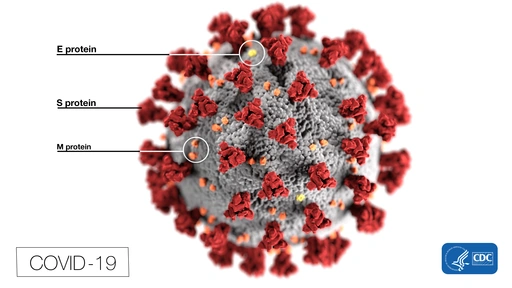
Alcuni pensieri stimolati dalla peste coronavirus...
(L'abbiamo messo insieme originariamente nel marzo 2020, e l'abbiamo appena aggiornato nel novembre 2020)
1. La peste del coronavirus è una brutta cosa. Fa ammalare la gente. Uccide alcuni di loro. Spaventa molte persone. Impedisce alle persone di riunirsi per fare le cose che vogliono fare. Incasina il mercato azionario, spazzando via i risparmi di una vita e le opportunità. (Sì, ora è tornato, ma di sicuro alcune persone sono state picchiate da esso). Probabilmente causerà la perdita di posti di lavoro. [Questo è stato scritto in anticipo; abbiamo visto le massicce perdite di posti di lavoro. Abbiamo visto una certa ripresa, ma c'è ancora un sacco di disoccupazione là fuori]. È un male!
2. 2. Dio vuole che accadano cose brutte? No. La Vera Religione Cristiana 43.)
3. Dio ha creato un universo in cui possono accadere cose brutte? Sì. A quanto pare. (Se si accetta che ci sia un Dio, ecc. -- che dovrà essere un altro filo...). Per molti versi, è un universo incredibilmente pericoloso, con buchi neri, e stelle che esplodono, e un caldo e un freddo incredibile. Eppure, c'è anche almeno un pianeta Riccioli d'Oro, dove le cose vanno bene. Ancora pericoloso, ma bello e lussureggiante e sorprendente. È un buon posto per lo sviluppo della vita umana, dove possiamo avere le sfide delle cose cattive, e sviluppare la saggezza e la forza di resistenza per affrontarle.
4. Quale pensi che sia la volontà di Dio in tutto questo? Ecco una risposta: Un buon risultato di questa piaga potrebbe essere che tutti noi vediamo e sperimentiamo le persone che si aiutano a vicenda, e le nazioni che si aiutano a vicenda. È disomogenea, naturalmente, ma... come esempio, gli sforzi per sviluppare un vaccino efficace sono stati aiutati da una pubblicazione abbastanza precoce della composizione del virus. C'è uno scambio di dati epidemiologici. C'è comunicazione. C'è la compassione. Ci sono stati enti di beneficenza in città che hanno inviato forniture mediche in eccedenza dagli Stati Uniti alla Cina quando il virus ha colpito duramente Wuhan. Vediamo gli operatori sanitari che si prendono coraggiosamente cura di persone malate e contagiose. Abbiamo visto rapidi progressi nelle terapie e una generosa condivisione di informazioni. E siamo appena riusciti a sviluppare un vaccino contro nuovi agenti patogeni dannosi in meno di un anno.
Come esseri umani, abbiamo avuto e abbiamo ancora l'opportunità di rispondere bene o male a questa crisi. C'è un concetto utile nella filosofia dello stoicismo, cioè che non puoi controllare tutte le cose che ti accadranno, ma puoi controllare il modo in cui rispondi. Credo che Dio voglia che noi rispondiamo bene. Certamente possiamo, e lo faremo, e dovremmo discutere su come ciò potrebbe apparire. Dovremmo essere in grado di farlo senza vetriolo, senza ostentazione, senza ipocrisia, ma con una giusta, calma considerazione dei fatti. Abbiamo la libertà di farlo. Possiamo avere la saggezza per farlo.
Se il nostro motivo principale è quello di amare il prossimo come noi stessi, accadranno delle cose buone.






